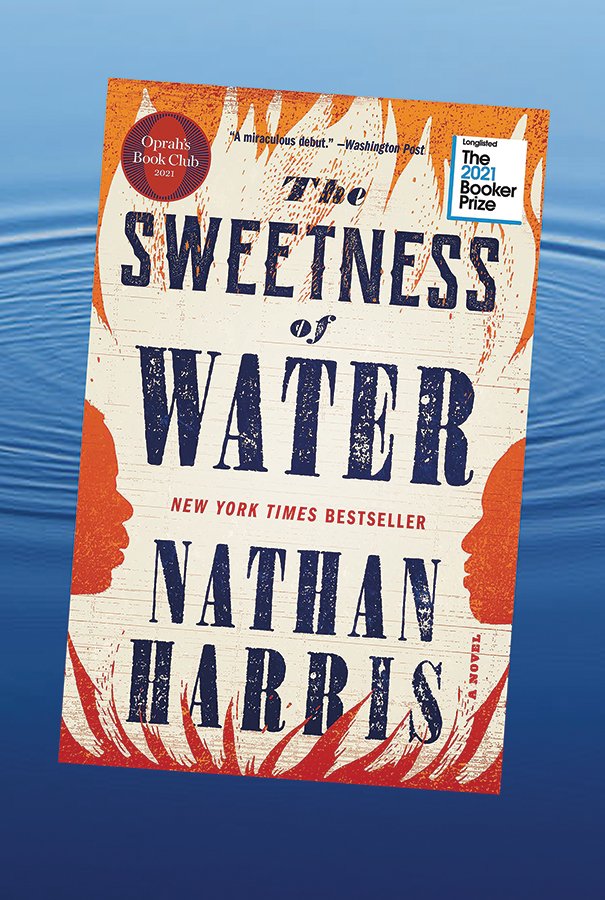Sweet Water in The Deep South
by Fran Withrow 12.2021
I picked up “The Sweetness of Water” because of the exquisite title, then became spellbound by the beauty of the writing. Lyrical and haunting, Nathan Harris has written a tale about the South just after the Emancipation Proclamation with understated power, pulling the reader into the story with an accomplished hand.
George and Isabelle Walker are transplanted northerners who live on a farm in Georgia. They recently heard that their only son, Caleb, died fighting in the War Between the States. Grieving, George wanders often through the woods of his land, where one day he finds two newly freed Black brothers, Landry and Prentiss, who were enslaved on the adjacent farm prior to being freed. The brothers have been struggling to survive in the forest, hoping to go north. Noticing that these two young men are the same age as his beloved son Caleb, George invites them to live in his barn and help him work his land, a proposition they accept.
When Caleb surprises everyone by returning home alive, he inadvertently sets in motion a cataclysm of events. Meeting his lover in the woods for a tryst one day leads to the murder of a witness. Caleb bravely confesses all to his parents, and the whole family ends up calling for justice, despite resistance from many of the townspeople. Prentiss, devastated by what has happened, stands up to the white sheriff, and the Walker family rallies around him with true courage and integrity. Isabelle, in particular, turns grief into action. Instead of fading into the woodwork, she cleverly finds ways around obstacles, ending up transforming her sorrow into something poignant and meaningful.
This is Harris’ first novel, and his writing is utterly compelling. He brings to life the struggles of Blacks during this turbulent period, as well as the confusion, fear, and anger simmering among the Whites. There is a muted, restrained tone to his prose, a sparseness to the way conversations are written, that actually lends an air of reality to the events of the story. Descriptions of newly emancipated men and women hiding in woods or huddled in alleys is never maudlin. Even violent events, like the hardships and suffering experienced by Prentiss and Landry before they were freed, are written in a matter of fact way that somehow makes them even more powerful.
The ending of this noteworthy novel is stirring, as Isabelle and George give unstintingly for the cause they champion. All this leads up to a satisfying, heartwarming finale, one as sweet as water.
I love reading the author biographies and looking at their photos on the dust jackets of my books. Harris seems impossibly young to have written such a standout. Though there is a plethora of historical fiction about the Civil War and its aftermath, this one is worth your time. Harris writes with keen insight about the thoughts, motivations, and intentions of both Blacks and Whites during this unsettled era. I expect we have not heard the last from this talented author.

